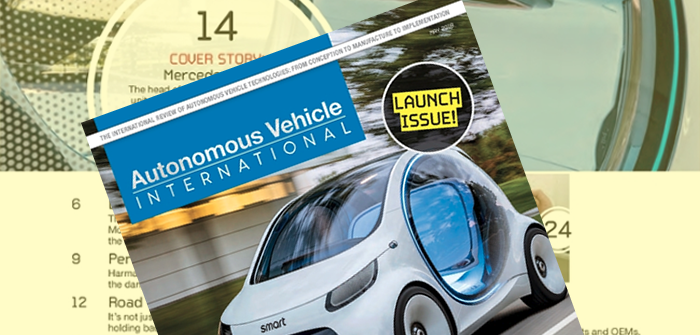A driverless shuttle developed by Continental, the CUbE, ferried people around the campus of Frankfurt University of Applied Sciences (Frankfurt UAS) during a trial held from 17-19 April 2018. A trained test engineer was on board.
Continental, the Frankfurt transport authority VGF and Frankfurt UAS are jointly working on the research and development of AVs. The aim of the trial is to collect practical experience in the operation of driverless vehicles as part of a collaboration between Continental, intelligent mobility solution integrator EasyMile and VGF as a potential future operator of such a mobility system. Students, employees and visitors could use the CUbE as often as they wanted during the trial and passengers were asked to complete a short questionnaire about the journey.
“With this trial, we are making future mobility concepts a reality and at the same time, we’re collecting valuable empirical data,” said Dr Andree Hohm, head of the self-driving car project at Continental. “We are leveraging our corporate-wide expertise in automation and mobility concepts to develop solutions for the urban traffic of tomorrow and, in particular, to improve quality of life in urban environments.”
The changing mobility situation in cities is also an important issue facing VGF. “Some of the technology used in this project the sensors, for example are key components of the driver assistance system developed at VGF for our trams, which reduces accidents,” said Michael Rüffer, general manager at VGF. “We want to use this technology on a larger scale and we have the opportunity to trial it here. It is important to integrate AVs in our control centre and thus ensure that they are linked to the other systems that we use.”
Frankfurt UAS has also noticed the trend towards driverless and electric mobility and is researching this field in its New Mobility group. The research of autonomous driving relates to Frankfurt UAS’s main areas of research: demographic change, renewable energies, mobility and logistics. “The integration of autonomous mobility solutions in the existing infrastructure now needs to be examined so that autonomous driving can offer the option to become an integral part of everyday mobility,” said Prof. Frank E P Dievernich.


